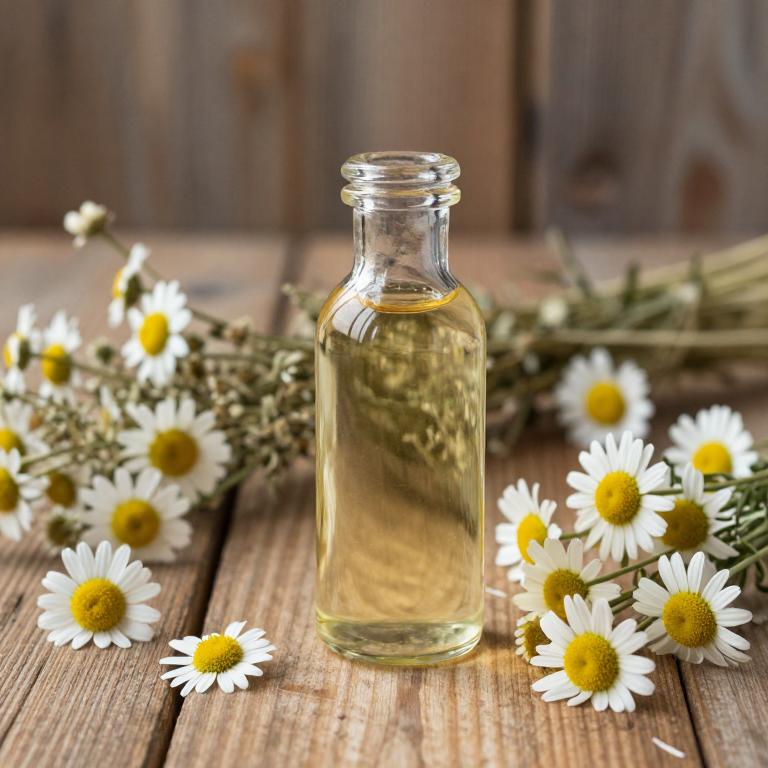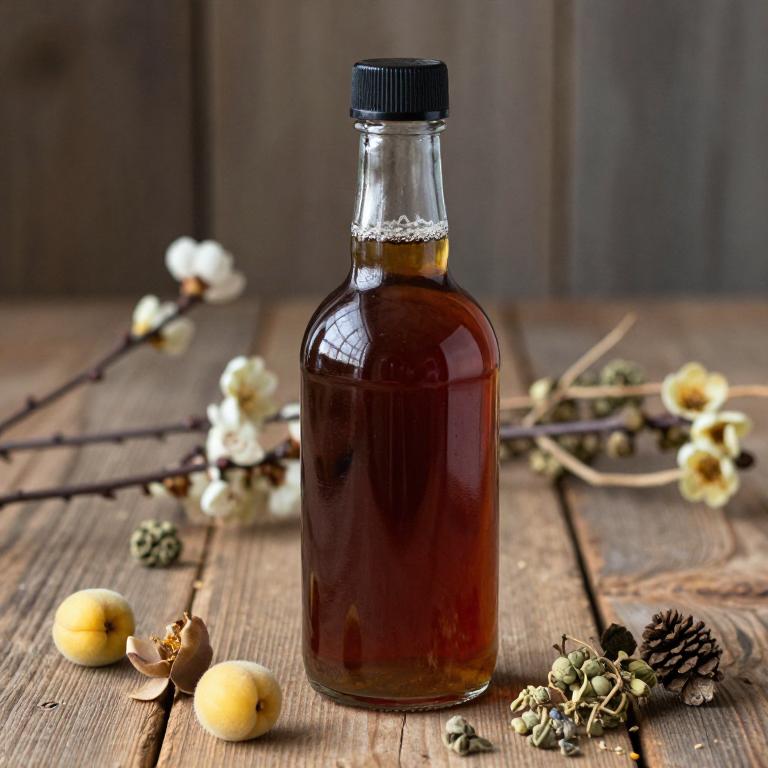10 Best Herbal Syrups For Inflammatory Bowel Disease

Herbal syrups have gained attention as potential complementary therapies for managing symptoms of inflammatory bowel disease (IBD), such as inflammation, pain, and digestive discomfort.
These syrups often contain natural anti-inflammatory and antioxidant ingredients like turmeric, ginger, and licorice root, which may help reduce gut inflammation and support digestive health. While some studies suggest that certain herbs may offer relief, the evidence remains limited, and their efficacy can vary among individuals. It is important for IBD patients to consult with healthcare professionals before using herbal syrups to ensure safety and avoid interactions with conventional treatments.
Overall, herbal syrups may be a useful adjunct in a holistic approach to IBD management, but they should not replace medical advice or prescribed therapies.
Table of Contents
- 1. Turmeric (Curcuma longa)
- 2. Ginger (Zingiber officinale)
- 3. Thistle (Silybum marianum)
- 4. Licorice (Glycyrrhiza glabra)
- 5. Chamomile (Matricaria chamomilla)
- 6. Aloe vera (Aloe barbadensis)
- 7. Stinging nettle (Urtica dioica)
- 8. Common grape (Vitis vinifera)
- 9. Salvia (Salvia officinalis)
- 10. European plum (Prunus domestica)
1. Turmeric (Curcuma longa)

Curcuma longa, commonly known as turmeric, contains curcumin, a compound with potent anti-inflammatory and antioxidant properties.
Herbal syrups made from Curcuma longa are increasingly being explored as complementary therapy for inflammatory bowel disease (IBD), including conditions like Crohn's disease and ulcerative colitis. These syrups may help reduce gut inflammation and oxidative stress, which are key factors in IBD pathogenesis. However, while some studies suggest potential benefits, more clinical research is needed to establish their efficacy and optimal dosing.
Patients should consult with healthcare professionals before using curcuma longa syrups as part of their treatment regimen.
2. Ginger (Zingiber officinale)

Zingiber officinale, commonly known as ginger, has been widely studied for its potential anti-inflammatory and gastroprotective properties, making it a promising candidate for the management of inflammatory bowel disease (IBD).
Herbal syrups made from ginger contain bioactive compounds such as gingerol and shogaol, which have demonstrated the ability to inhibit pro-inflammatory pathways and reduce oxidative stress in the gastrointestinal tract. Preliminary research suggests that regular consumption of ginger syrups may help alleviate symptoms like abdominal pain, diarrhea, and inflammation in IBD patients. However, while some studies support its use as a complementary therapy, more clinical trials are needed to establish its efficacy and safety in long-term IBD management.
As a natural remedy, ginger syrup may offer a mild and accessible option for symptom relief, though it should not replace conventional medical treatments without professional guidance.
3. Thistle (Silybum marianum)

Silybum marianum, commonly known as milk thistle, has been traditionally used for its hepatoprotective properties, and recent studies suggest its potential benefits for inflammatory bowel disease (IBD).
The active compound, silymarin, exhibits anti-inflammatory and antioxidant effects that may help reduce intestinal inflammation and oxidative stress associated with conditions like ulcerative colitis and Crohn's disease. Some clinical trials have indicated that silybum marianum herbal syrups could complement conventional treatments by improving symptoms and enhancing gut barrier function. However, more research is needed to establish standardized dosages and long-term safety profiles for IBD patients.
Despite promising preliminary evidence, it is important for individuals with IBD to consult with healthcare professionals before incorporating silybum marianum syrups into their treatment regimen.
4. Licorice (Glycyrrhiza glabra)

Glycyrrhiza glabra, commonly known as licorice root, has been traditionally used in herbal medicine for its anti-inflammatory and soothing properties.
Herbal syrups made from Glycyrrhiza glabra may help alleviate symptoms of inflammatory bowel disease (IBD) by reducing intestinal inflammation and promoting mucosal healing. The active compounds in licorice, such as glycyrrhizin and flavonoids, exhibit anti-inflammatory, antioxidant, and immunomodulatory effects that may support gut health. However, long-term use of licorice-based syrups can lead to side effects like hypertension and electrolyte imbalances due to its mineralocorticoid-like activity.
As a complementary therapy, Glycyrrhiza glabra syrups should be used under the guidance of a healthcare professional, especially for individuals with IBD.
5. Chamomile (Matricaria chamomilla)

Matricaria chamomilla, commonly known as chamomile, has been traditionally used for its anti-inflammatory and soothing properties, making it a subject of interest in the treatment of inflammatory bowel disease (IBD).
Preliminary studies suggest that chamomile may help reduce inflammation in the gastrointestinal tract by inhibiting pro-inflammatory cytokines and oxidative stress. Herbal syrups containing Matricaria chamomilla are often used as complementary therapy to alleviate symptoms such as bloating, abdominal pain, and diarrhea associated with IBD. While more clinical research is needed to confirm its efficacy and safety, some patients report improved gut health and reduced flare-ups when using chamomile-based syrups.
As a natural remedy, chamomile syrup may offer a gentle alternative or adjunct to conventional treatments for managing IBD symptoms.
6. Aloe vera (Aloe barbadensis)

Aloe barbadensis, commonly known as aloe vera, has been studied for its potential therapeutic effects on inflammatory bowel disease (IBD), including conditions like Crohn's disease and ulcerative colitis.
Research suggests that aloe vera may possess anti-inflammatory, immunomodulatory, and antioxidant properties that could help reduce intestinal inflammation and promote gut healing. Some clinical studies have shown that aloe vera herbal syrups may alleviate symptoms such as diarrhea, abdominal pain, and mucosal damage in IBD patients. However, more rigorous, large-scale trials are needed to confirm its efficacy and establish standardized dosing protocols.
While aloe barbadensis syrups may offer a complementary approach to conventional IBD treatments, they should not replace prescribed medical therapies without consulting a healthcare professional.
7. Stinging nettle (Urtica dioica)

Urtica dioica, commonly known as stinging nettle, has been traditionally used for its anti-inflammatory properties, and some herbal syrups containing this plant are being explored for their potential benefits in managing inflammatory bowel disease (IBD).
These syrups may help reduce intestinal inflammation by modulating immune responses and decreasing oxidative stress. Preliminary studies suggest that Urtica dioica can support gut health by promoting mucus production and protecting the intestinal lining. However, more clinical research is needed to confirm its efficacy and safety in IBD patients.
As an adjunctive therapy, Urtica dioica syrup may offer a natural alternative or complement to conventional treatments for IBD.
8. Common grape (Vitis vinifera)

Vitis vinifera, commonly known as the grape vine, has been traditionally used in herbal medicine for its potential anti-inflammatory properties.
Herbal syrups derived from Vitis vinifera, particularly those containing resveratrol, may offer therapeutic benefits for individuals with inflammatory bowel disease (IBD) due to their antioxidant and anti-inflammatory effects. These syrups are often prepared by extracting bioactive compounds from grape skins and seeds, which are rich in polyphenols. Some preliminary studies suggest that Vitis vinifera extracts may help reduce gut inflammation and enhance intestinal barrier function in IBD patients.
However, more clinical research is needed to fully understand their efficacy and safety in managing inflammatory bowel disease.
9. Salvia (Salvia officinalis)

Salvia officinalis, commonly known as common sage, has been traditionally used for its anti-inflammatory and antimicrobial properties, making it a potential candidate for the management of inflammatory bowel disease (IBD).
Herbal syrups made from salvia officinalis may help reduce gut inflammation by modulating the immune response and inhibiting pro-inflammatory cytokines. Preliminary studies suggest that sage extracts can support gut health by promoting the balance of beneficial intestinal flora. While more clinical research is needed to confirm its efficacy, some patients with IBD report symptom relief when incorporating sage-based syrups into their regimen.
As a complementary therapy, salvia officinalis syrup may offer a natural option for managing IBD symptoms under the guidance of a healthcare professional.
10. European plum (Prunus domestica)

Prunus domestica, commonly known as the European plum, has been traditionally used in herbal medicine for its anti-inflammatory and digestive benefits.
Recent studies suggest that the bioactive compounds in Prunus domestica, such as polyphenols and flavonoids, may help reduce inflammation in the gastrointestinal tract, making it a potential natural remedy for inflammatory bowel disease (IBD). Herbal syrups made from Prunus domestica are often prepared by infusing the fruit in alcohol or glycerin, preserving its beneficial compounds for oral consumption. While preliminary research is promising, more clinical trials are needed to establish its efficacy and safety for IBD patients.
Nonetheless, some individuals with IBD may consider incorporating Prunus domestica syrups as a complementary therapy under the guidance of a healthcare professional.